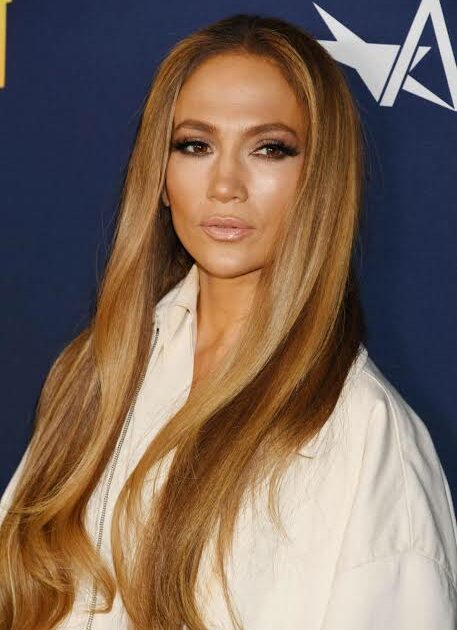Jennifer Lopez, the renowned American actress and singer, finds herself embroiled in a legal battle over copyright infringement, facing a $300,000 lawsuit for allegedly sharing copyrighted photographs on her social media platforms. The lawsuit, filed by photographer Edwin Blanco and his agency, Backgrid, stems from Lopez’s social media posts following her appearance at the 2025 Golden Globe Awards. Lopez, who graced the red carpet in a stunning white ensemble, later shared a series of photos captioned “GG Weekend Glamour.” Two of these images, captured by Blanco, are at the heart of the legal dispute, with Backgrid claiming Lopez used them without obtaining the necessary authorization. The agency contends that Lopez leveraged the images for commercial gain, specifically to promote her fashion affiliations and brand partnerships by tagging the designers of her attire and jewelry.
The lawsuit underscores the increasing complexities surrounding image rights and copyright in the digital age, particularly for high-profile celebrities like Jennifer Lopez. Blanco and Backgrid argue that Lopez’s substantial online presence, coupled with her tagging of fashion brands, constitutes a commercial use of the photographs. They assert that Lopez exploited the publicity surrounding the Golden Globe Awards to enhance her brand image and promote associated fashion labels, thereby infringing on their copyright. The $150,000 sought for each image reflects the perceived commercial value derived from their unauthorized use on Lopez’s widely viewed social media platforms. This legal action raises important questions about the boundaries of fair use and the implications of social media sharing for copyright holders, particularly in the context of celebrity endorsements and brand promotion.
The lawsuit against Lopez sheds light on the delicate balance between a celebrity’s right to share personal experiences and a photographer’s right to control the commercial use of their work. While social media platforms encourage the sharing of personal content, including photographs, the unauthorized use of copyrighted material for commercial purposes can constitute infringement. Lopez’s case highlights the potential pitfalls for celebrities who may inadvertently violate copyright laws by sharing professional photographs without obtaining proper authorization. The lawsuit suggests that even seemingly innocuous acts, such as tagging designers in social media posts, can be construed as commercial use if the context suggests a promotional intent. This emphasizes the need for celebrities and their management teams to exercise caution and seek legal counsel before sharing professionally taken photographs on social media, particularly if brand affiliations are involved.
This is not Lopez’s first encounter with legal challenges concerning image rights. She previously faced similar lawsuits in 2019 and 2020, also involving the unauthorized posting of professional photographs on social media. This pattern of legal disputes suggests a recurring issue with regard to Lopez’s understanding and management of image rights. It raises questions about the effectiveness of her legal team in advising her on copyright compliance and the potential need for more robust internal procedures to prevent future infringements. The repeated nature of these lawsuits underscores the importance of proactive measures to ensure that all images shared on Lopez’s social media platforms are either owned by her or used with the express permission of the copyright holders.
The lawsuit brought by Blanco and Backgrid against Jennifer Lopez serves as a cautionary tale for celebrities and social media users alike. It highlights the potential legal and financial ramifications of sharing copyrighted material without authorization, even on seemingly personal platforms. The case emphasizes the importance of respecting intellectual property rights and understanding the legal boundaries that govern the use of images, particularly in the commercial sphere. For celebrities, the case underscores the need for vigilance in managing their online presence and ensuring compliance with copyright laws. The legal landscape surrounding image rights and social media is constantly evolving, and this case reinforces the importance of staying informed and seeking expert legal advice to navigate these complexities.
In conclusion, the $300,000 lawsuit against Jennifer Lopez for allegedly sharing copyrighted photographs highlights the ongoing tension between copyright protection and the free flow of information on social media. The case raises crucial questions about the boundaries of fair use, the commercial implications of social media sharing, and the responsibilities of celebrities in respecting intellectual property rights. As social media continues to play an increasingly prominent role in both personal and professional spheres, understanding and adhering to copyright laws becomes paramount for individuals and organizations alike. This case serves as a valuable reminder of the importance of seeking legal counsel and implementing proactive measures to avoid costly and potentially damaging copyright infringement lawsuits.














